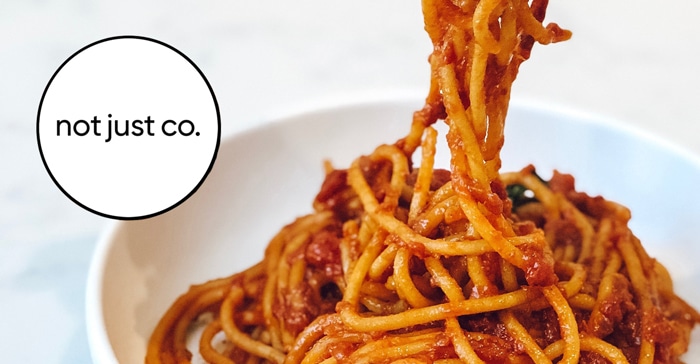Sauce in the City: Raising the First Round

Reid Hoffman, the co-founder of networking platform LinkedIn, once said, “An entrepreneur is someone who will jump off a cliff and assemble an airplane on the way down.” I’ve heard people invoke this quote a lot when it comes to fundraising. People say investors won’t take you seriously unless you “take the leap,” i.e., quit your job to focus full-time on your startup. It makes my blood boil.
And I’m here to tell you, they’re wrong.
In my case — and in the case of so many ambitious, committed, serious founders — giving up an income that pays the rent, and the preschool tuition, and puts food (not including the stacked cases of product littering your living/work space) on the table, requires you to earn a paycheck in the process of getting funded. Period.
That doesn’t mean you don’t need to spend well over 40 hours a week hustling your face off to secure investment, while still building your business. It means you had better be creative, and ready sacrifice some things. Like sleep, for instance, which is why I’m writing this column at 4:15 a.m. on a Saturday. Whatever is going on in your life, the raise will have to take priority if you want to be successful.
Now, we all come to this with strengths and weaknesses, and I’m aware that I’m lucky to have worked in food in some capacity, enjoy a flexible career, and have a supportive family and co-founder. These things all help — a lot. Whatever advantages you might have, now is the time to take stock, and lean into the resources you’ve got.
But in case you are doubting your ability to execute, let me be clear: YOU CAN DO THIS. And you don’t need a rich uncle, a Harvard Business School Education, or any prior knowledge of the difference between a SAFE and a standard convertible note to do so. As we quickly approach the close of our first round I wanted to share some things I’ve learned, and stories from the trenches. Here are my top 5 fundraising tips.
1. Check your money baggage. Not to get all self-helpy here, but you’ve got to get over whatever weirdness you have around talking about/asking for/confidently handling cash. Katy Flannery of Beckon Ice Cream (shout out to them for winning the pitch-slam at Nosh Live!) told me that it took some time to get over the term “friends and family”, when it came to fundraising, which really, really resonated with me. Back when I was just brainstorming how to get this thing off the ground I was told, “99% of people raise $250-300,00 from friends & family first.” I went into a tailspin, and was tempted to throw my hands up in the air since I couldn’t think of a single pal or blood relative I could ask to write me a meaningful-sized check. As Katy pointed out, “friends & family” often means tapping your network hard, reaching out to former employers, professors, friends of friends, and — maybe — that one wealthy friend or family member. This will make you sweat and feel like you are going to pass out. This is normal and necessary.
2. Be ready for the blows. There will be bad days. Days when smart people blast cannonballs through your financial model. Days when you think you’ll never get that first check. Days wasted at lame networking events. Days when you’re hunched over a public toilet in heels, projectile vomiting before a pitch meeting…or maybe that’s only if, like me, you’re raising while pregnant. Speaking of which, I had a very well-meaning founder tell me that many people won’t invest in a company if they find out the founder’s wife is pregnant. That may have sent me and my large belly back to the bathroom to throw up again, but then I laughed. Those are not the people I want investing in my company anyway. Whatever your situation, raising money can be brutal, but I’m tougher, walk taller, and hand-to-heart am endlessly more confident in my business, and myself, for going through this process.
3. Don’t give away the farm. When we got our first commitment I burst into tears of pure joy, and relief (not in front of the investor, though my 3 year-old son was present and very, very confused.) When it took a while for the next check to come in, the investor wanted to hedge his bets by adding a side letter to our term sheet that would give him more control if we failed to meet our fundraising goals. My partner and I came very close to accepting this deal. In fact, we made the mistake of telling him we thought it sounded reasonable, and then had to back-pedal. Were it not for the intervention of our attorney, we would have signed. There are really two lessons here: The first is, don’t say yes to anything without consulting your attorney and advisors. Second, don’t be so eager to get a check that you give up more than you need to.
4. Be gracious, but not too grateful. Of course you should say thank you to your investors, but that check is not a gift. It’s fuel to grow their money into more money — on a steady diet of your blood, sweat, and tears. By all means, allow yourself to feel deeply grateful to the people who help this journey happen. That was the most humbling, rewarding part of this process: discovering that people believe in me, and my vision. It keeps me going when sleep, time, and money are in very short supply. But never forget that this is a partnership, a two-way-street, and you are giving your investors an opportunity to be a part of something great.
5. Be a human. For all the slides, and models, and projections, what matters most at the earliest stages of investment is human connection. Investors are people too. They want communication, kindness, humility, and grit. They need to trust you can pull this off, and like you enough to take the chance. Don’t be afraid to be vulnerable, ask questions, and have a laugh. And whatever it takes, keep your spirits up. If you come across as tired and bedraggled, you’re not going to inspire anyone to whip out a checkbook. Since I kicked this off with an overused ubiquitous quote, I’ll wrap up the same way. In the immortal words of Ben & Jerry, “If it’s not fun, why do it?”
About the author: Catherine Smart is a veteran food journalist who recently launched the Not Just Co. in the Boston area. This column is part of a series for NOSH.com in which she will explore the challenges, triumphs, and decisions that crop up in the daily experience of the food entrepreneur.















